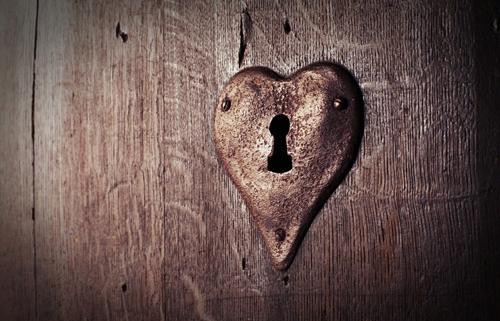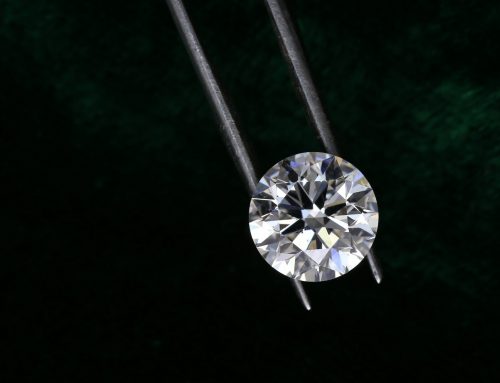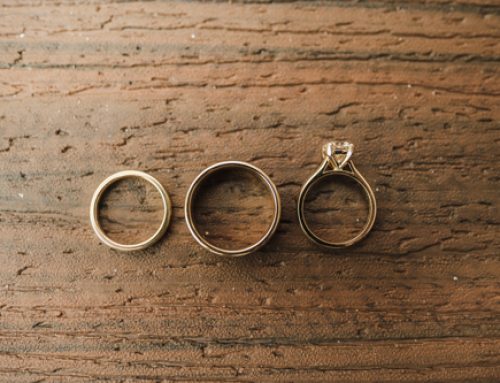A high-quality, jewelry-grade tungsten ring will not oxidize — meaning it will not rust or tarnish. However, it is sometimes the case that tungsten metals are combined with another metal to create an alloy, and a lower quality, industrial tungsten alloy may contain cobalt, which can show oxidation and corrosion.
If a tungsten rings jeweler takes it upon themselves to provide high-quality, jewelry-grade metals, you will be paying for a ring that promises longevity and to be blemish-free.
Not all tungsten rings are the same, and before you purchase one you’ll want to understand the process of oxidation, how certain metals react to the elements, and if these metals are included as an alloy in your tungsten wedding ring — which can cause rust and tarnish.

What Causes Rust, Tarnish, and Oxidation?
If you are looking for a rust-and-tarnish-free tungsten ring, you’ll want to know which metals are subject to oxidation. Most rings are not made of a pure metal, but of an alloy — which can be a combination of a variety of metals — that can reduce the cost, improve the strength, or reduce the risk of corrosion. It will be crucial to know which of these metals are prone to rust to make sure they are not present in your tungsten ring.
Metal rusts because of exposure to oxygen and moisture, and can tarnish from prolonged exposure to air and moisture as well. When a metal loses its luster and shine — often turning a different color called a patina — it is referred to as “tarnished”.
Most metals, with the exception of precious metals, are subject to oxidation, rust, and tarnishing. However, some metals oxidize much quicker than others, most notably:
- Silver;
- Iron;
- Titanium;
- Gold;
- Cobalt;
All these metals are commonly used for rings, even if just as a binding alloy.
Which Tungsten Alloys Will Oxidize?
A pure tungsten ring will not rust unless under extreme heating conditions. Pure tungsten will start to oxidize at 600-800 degrees Celsius. Unless it will be in an environment that is 1,112 degrees Fahrenheit, your tungsten ring will not rust or tarnish. Tungsten is sometimes even used in heating devices because of its ability to withstand high heat levels.
A tungsten alloy ring can rust, however, when it contains certain more rust-prone metals. You’ll want to make sure that your ring is made with jewelry-quality metal alloys, such as nickel, to ensure your ring keeps its shine and will be rust-free.
An industrial-grade tungsten ring will likely use cobalt as its alloy. These rings may be less expensive, but may have a higher chance of rusting or tarnishing.
A jewelry-grade tungsten ring might cost a bit more, but should be of higher quality. A jewelry-grade tungsten alloy ring will use nickel as its binding component. This quality of ring should show no signs of oxidation, rust, corrosion, or tarnish.
If you are concerned with the oxidation and durability of your ring, you will need to find a retailer that guarantees a jewelry-grade tungsten ring.
How Long Will My Tungsten Wedding Ring Last?
Tungsten, and especially tungsten carbide, is one of the most durable and scratch-resistant metals to make a ring out of. Additionally, these metals are very corrosion-resistant.
Will My Tungsten Ring Crack or Scratch?
Harder metals such as tungsten tend to be more brittle — meaning they can crack, break, or shatter under forceful impact. Quality jewelers will offer you a lifetime warranty for your tungsten ring, and if you have an issue with scratching, sizing, or cracking/breaking, it can be replaced free of charge.
Tungsten wedding bands for men have become a popular option for their durability and scratch-resistant properties. Especially in the case of tungsten carbide rings, any daily wear and tear won’t show. While your tungsten ring may crack or shatter from an extremely strong blow, it likely will not show scratch marks from ordinary day-to-day activities.
Can My Tungsten Ring be Resized?
Tungsten rings cannot be resized because of the hardness of the metal. It is extremely difficult to cut, add, or remove tungsten for resizing. If you find that your ring is too small or big, a replacement might be covered under a lifetime warranty policy. A good jeweler knows that finger sizes can grow or shrink, or that you may have purchased the wrong sized ring from the get-go. Since a tungsten ring cannot be resized, they will provide you with the correct sized ring at no cost.
Maintaining Your Tungsten Ring
Industrial grade tungsten rings can be susceptible to oxidation, rust, and tarnishing. It is important you understand how to clean and maintain your tungsten ring, and get it polished when you need to. A jewelry-grade tungsten ring can withstand daily showers, household cleaners, and most any other contact with water and/or minor chemicals without compromising the integrity of your ring.
Does Tungsten Turn Your Finger Green?
Finally, metal allergies are a possibility with most any metal that will be in constant contact with your skin. This can cause discoloration, irritation, or rashes. Discoloration can turn your finger green or black as metal alloys come into contact with skin that perspires.
Common alloys of a tungsten ring — cobalt and nickel — both can be a skin irritant for certain people. This is a concern you will have with a ring of any metal, however, tungsten with a nickel alloy is considered hypoallergenic.
The characteristics of tungsten are fascinating and make for a highly durable and scratch-resistant ring. Additionally, a quality tungsten ring will not oxidize, rust, or tarnish. These traits can make tungsten wedding rings attractive to anyone who is concerned with the lifespan, durability, and continual shine of their wedding band.
.





Leave A Comment